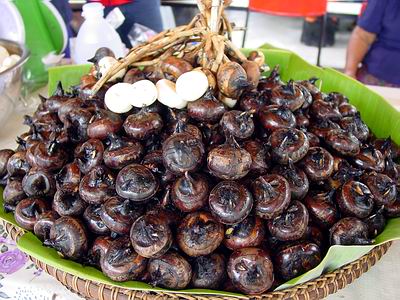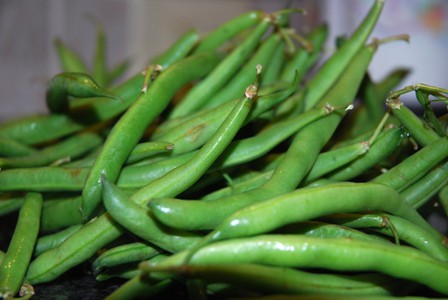The soybean (U.S.) or soya bean (UK) (Glycine max) is a species of legume native to East Asia. The plant is classed as an oilseed rather than a pulse.
Fat-free (defatted) soybean meal is a primary, low-cost, source of protein for animal feeds and most prepackaged meals[citation needed]; soy vegetable oil is another valuable product of processing the soybean crop. For example, soybean products such as textured vegetable protein (TVP) are important ingredients in many meat and dairy analogues.
Traditional nonfermented food uses of soybeans includesoymilk, and from the latter tofu and tofu skin. Fermented foods include soy sauce, fermented bean paste, natto, andtempeh, among others. The oil is used in many industrial applications. The main producers of soy are the United States (32%), Brazil (28%), Argentina (21%), China (7%) and India (4%). The beans contain significant amounts of phytic acid, alpha-Linolenic acid, and the isoflavonesgenistein and daidzein.
Soybeans can produce at least twice as much protein per acre as any other major vegetable or grain crop, 5 to 10 times more protein per acre than land set aside for grazing animals to make milk, and up to 15 times more protein per acre than land set aside for meat production.
Health Benefits of Soybean
- Soybean is an excellent food for diabetes.
- It is easily digested and is one of the most nourishing and body building foods in the world.
- It is especially good for growing children to aid growth and development.
- Soybean has high lecithin content and is therefore excellent for mental fatigue and for protection against cholesterol deposits.
- It has been claimed that lecithin lowers blood cholesterol thru emulsification of fats and is valuable against the development and hardening of the arteries and all the complications of the heart, brain, kidneys and eyes that follow.

